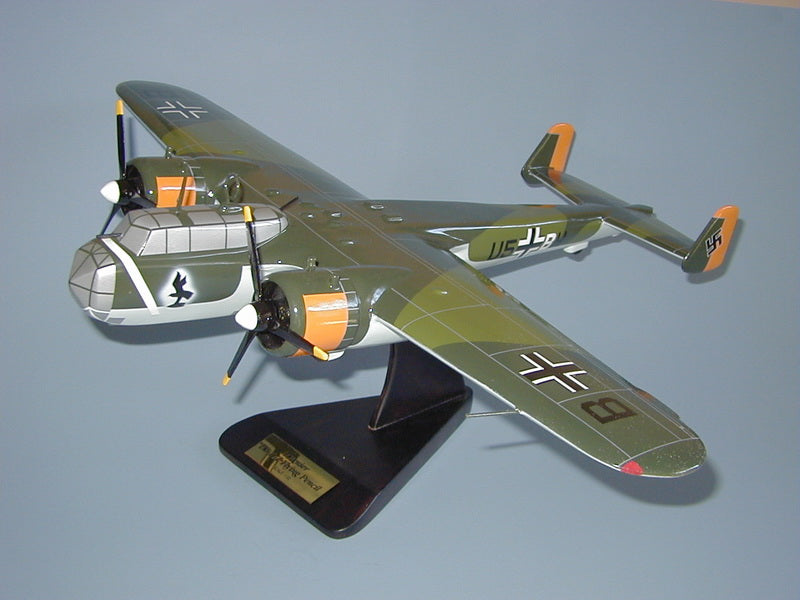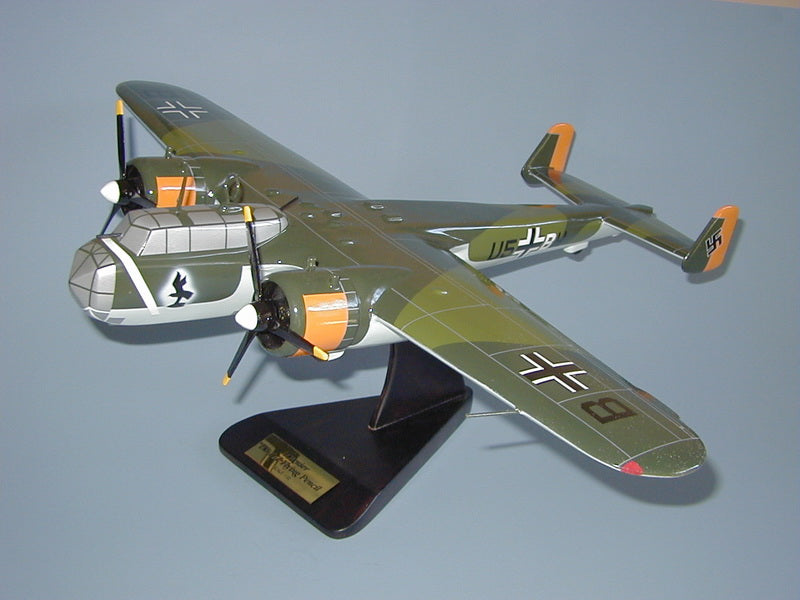Dornier DO-17 Luftwaffe airplane model. By 1940 the main Luftwaffe type was the Do 17 Z with 1000 hp Bramo (BMW) Fafnir radial engines and a new front fuselage accomodating a crew of four which much more room and better defensive armament: six 7.92 mm MG 15 machine guns, one fixed firing ahead, one aimed from the front (bomb aimers) windows, one aimed on each side, and one aimed above and below at the rear. By this time the bomb load had risen to 2205 pounds and the speed was about 255 mph at full throttle - accompanied by ample black smoe. Though rather small and lighter than the other Luftwaffe bombers the Do 17 Z was like by its crews, because it was extremely maneuvreable, had no flight limitations (it could dive at full throttle) and had a reputation for getting home after being damaged in action. The Dornier still too a mauling in the Battle of Britain and were withdrawn to the Russian front in the spring of 1941. By 1942 they were being withdrawn from bombing missions and used as glider tugs and battlefield supply dropping. The Do 215 was a model with DB 601A liquid cooled engines built for export in small numbers but taken over by th Luftwaffe. About 100 were delivered as reconnaisance bombers, but by 1942 most of the 75 survivors had been rebuilt as some of the first German night-fighters. They carried a 20 mm MG FF cannon and four MG 17 machine guns in a solid nose and a few were fitted with infra-red or radar to help find enemy aircraft at night.
,
,Mahogany Wood. Scale: 1/32. Wingspan 22 inches, Length 19 1/2 inches.


